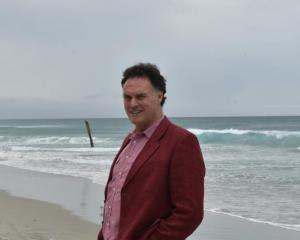The proposed changes, to be presented to a Dunedin City Council infrastructure services committee today, might lift council rates by 6.2% but would also lead to the elimination of both recycling blue bins, and black rubbish bags.
Any changes would be more than 18 months away.
Council city environment manager Tony Avery said a third bin for garden waste and kitchen waste was not included in the proposal as it was too expensive, but might be considered later.
The rate rise of 6.2% was misleading as people would no longer have to buy black rubbish bags, or need a private wheelie bin, he said.
The cost to a ratepayer would be about $174 a year, up from the present minimum $126, which covered the cost of using a blue recycling bin and one rubbish bag a week.
Mr Avery said many households used more than one bag, or had their own wheelie bin.
Christchurch, Auckland and Manukau city councils were all creating 240-litre wheelie bin recycling systems.
Mr Avery said the present 45-litre blue recycling bin was not meeting the council's waste strategy.
"The blue bin is not big enough and is not accepting enough recyclables," he said.
"There is cardboard and other recyclables that people are not putting in their recycling bin as they find it too difficult to wrap them up. Hopefully, this new bin, where you'll be able to throw everything in, will increase the materials coming through."
New recyclables to be accepted would include all plastic bags and meat trays.
The smaller 120-litre rubbish wheelie bin would be picked up weekly and the 240-litre recycling bin would be picked up every two weeks.
It had not been decided whether properties could get a second rubbish bin.
Mr Avery said each bin would have a lid of a different colour. Private contractors might offer a service to pick up garden waste.
Another factor against an organic bin was the large amount of compost it would create and how the council would sell it.
He said there would be consultation before any changes were approved, and they were at least 18 months away.
Waste management companies had been consulted and had placed proposals with the council.
In the report to the committee by Mr Avery, three other options were considered: the status quo of black bags and small recycling bin; staying with the black rubbish bags and a 240-litre recycling bin, and three bins for recycling, waste, and organics.
The two-bin option was preferred as it helped meet recycling targets. The target was 150kg a year per household in recyclables, but the city was only averaging 119kg a year.
More recyclables in the bin would reduce general waste levels. There was a target of 720kg of general waste per person per year. Waste generated now averages 800kg per person per year.
The council estimated about half the houses in Dunedin used a 240-litre wheelie bin for a weekly collection, costing between $150 and $200 annually.



